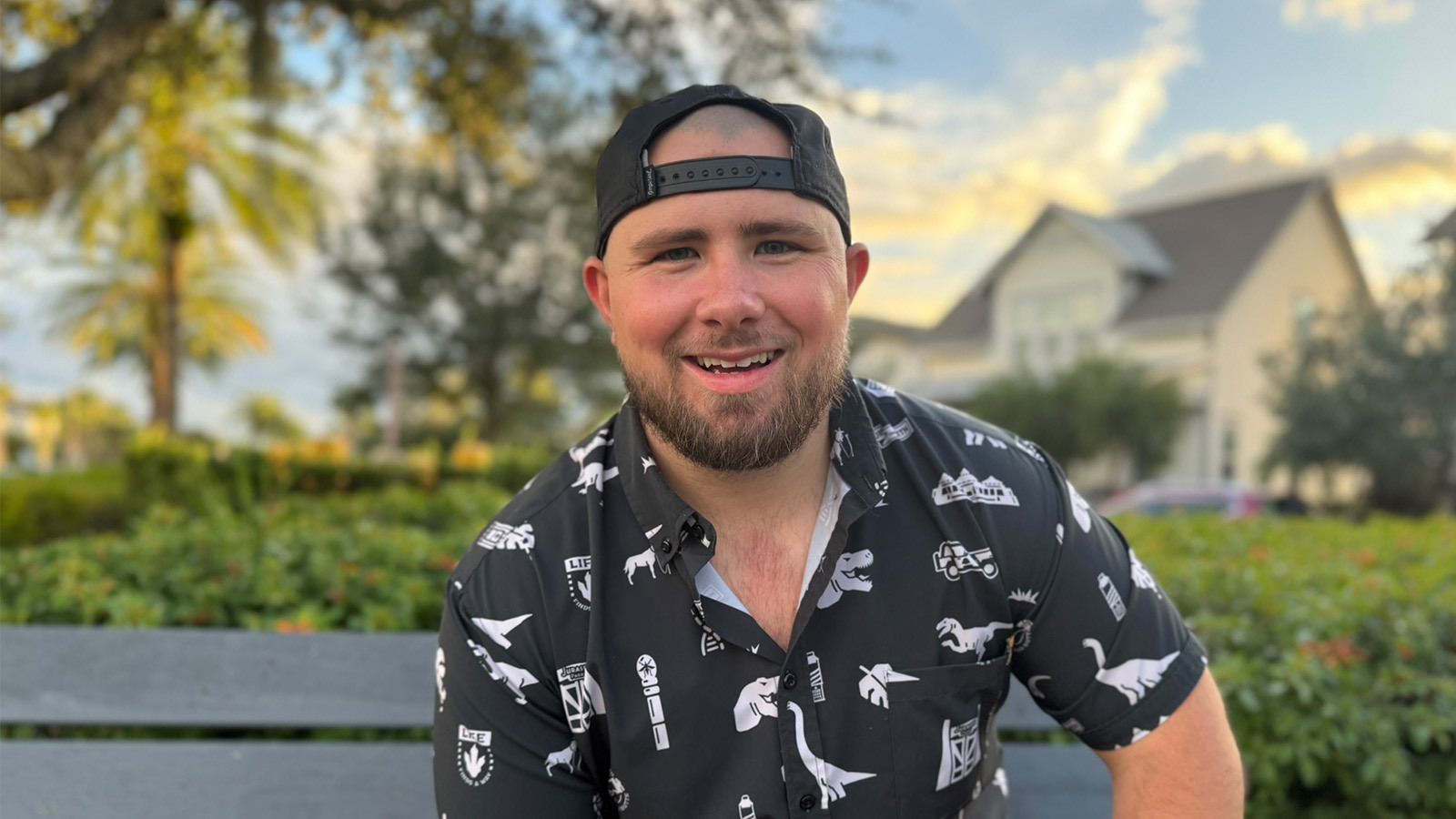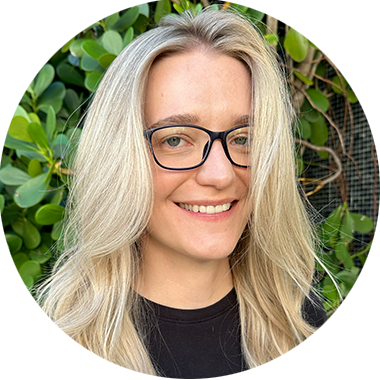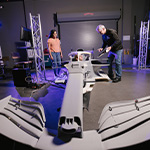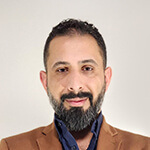Full Sail Stories
Published Oct 27, 2025
Computer Science Grad & Army Veteran Helps Program Flight Training Simulators
As a Software Engineer at CAE, Tyler Yates codes and troubleshoots software for flight simulators that train private pilots for flight and in-air emergencies.

“I think one of the coolest aspects of my job is that my work can potentially save lives,” says Tyler Yates. The Computer Science bachelor’s grad and Army veteran is currently a Software Engineer at CAE, where he helps code and troubleshoot software for flight simulators that are used to train private pilots. Working with high-end tech to prepare pilots for tough situations in the air lets Tyler contribute to the greater good through his love for computer science – and his time at Full Sail helped prepare him for that.
Before he started at Full Sail, Tyler worked in IT for the Army, setting up network configurations, switches, and router systems from scratch, as well as maintaining network setups. That sparked his interest in technology, and he decided to pursue a Computer Science bachelor’s degree.
Tyler put plenty of energy into his classes, but the Army veteran was also active in Full Sail’s Veteran Student Union (VSU), serving as the Secretary. He took notes at meetings, assisted other student veterans, and helped coordinate events, including a lock-in at the VSU where veteran students connected with the rest of Full Sail’s students.
After he graduated, Tyler held a few contract positions and internships in technology before landing at CAE as a Software Engineer. He works on software for about 12 different simulators, from flight training devices that sit on the ground and give realistic visuals of how a cockpit looks and feels, to full flight simulators, which are mounted on motion platforms and shift on different axes for a more immersive training experience. The realism of these simulators gives pilots a safe way to practice for tense flight situations.
“We’d rather replicate an engine failure in a simulator versus a real plane. The simulator just puts the pilot in a safe place, as well as being able to give them that realistic expectation of, ‘In this scenario, what would you do?,’” Tyler explains.
Tyler adjusts and maintains the code for the simulators he works on and helps add features when necessary. Combining research and technical skills is essential to his role.
“If there's a new feature that needs to be added [to train in a specific scenario], then I'll look over the pilot operating handbook. I'll look over any of the documents I can find pertaining to that scenario or that particular plane, and I'll try to code it out and make it to where it’s the realistic expectation of how this would function if you were in a real plane, so every calculation I do is the exact calculation that you would see based off of a real plane. I take into account weight, physics, all that.”
The practical coding skills that Tyler learned at Full Sail helped prepare him for much of the work he’s doing today, especially when it comes to troubleshooting.
“Between my personal projects and class assignments, I spent a lot of time at Full Sail debugging,” he says. “And now, I find myself constantly debugging. Eighty percent of my work is troubleshooting. I'll do my due diligence to go through the software, look through the code, and then debug from there, see if I can make alterations there, or prove that it is a hardware issue.”
The effort that Tyler spent debugging projects outside of class ties into his advice for up-and-coming software engineers – he thinks that taking time to practice your skills on passion projects makes all the difference.
“Take what you're learning while in class and apply it into your own personal projects. You can go to class all day, you can take notes, you can do the projects in class, but ultimately apply yourself to passion projects... If this is what you want to do, put some effort into it on your own time. Invest in yourself.”



